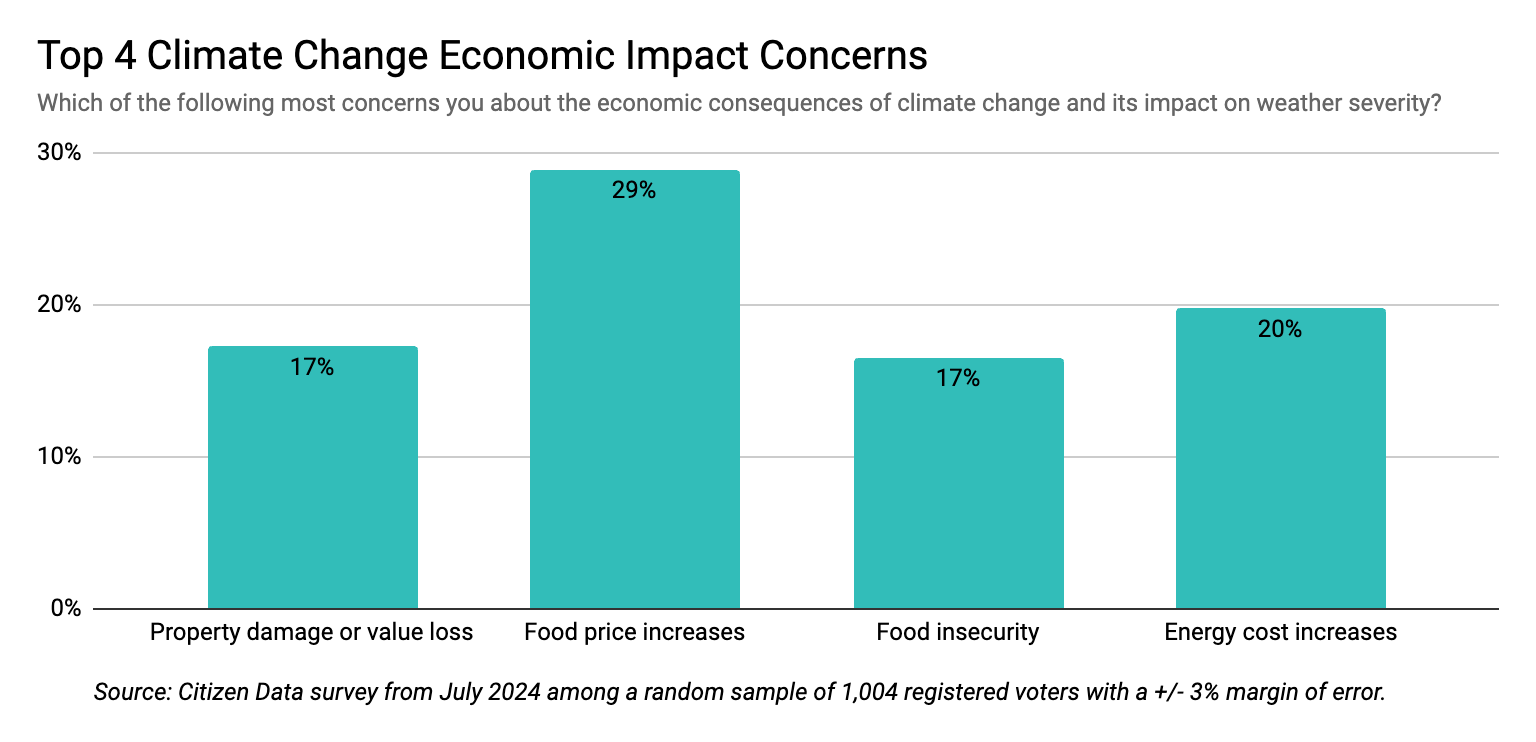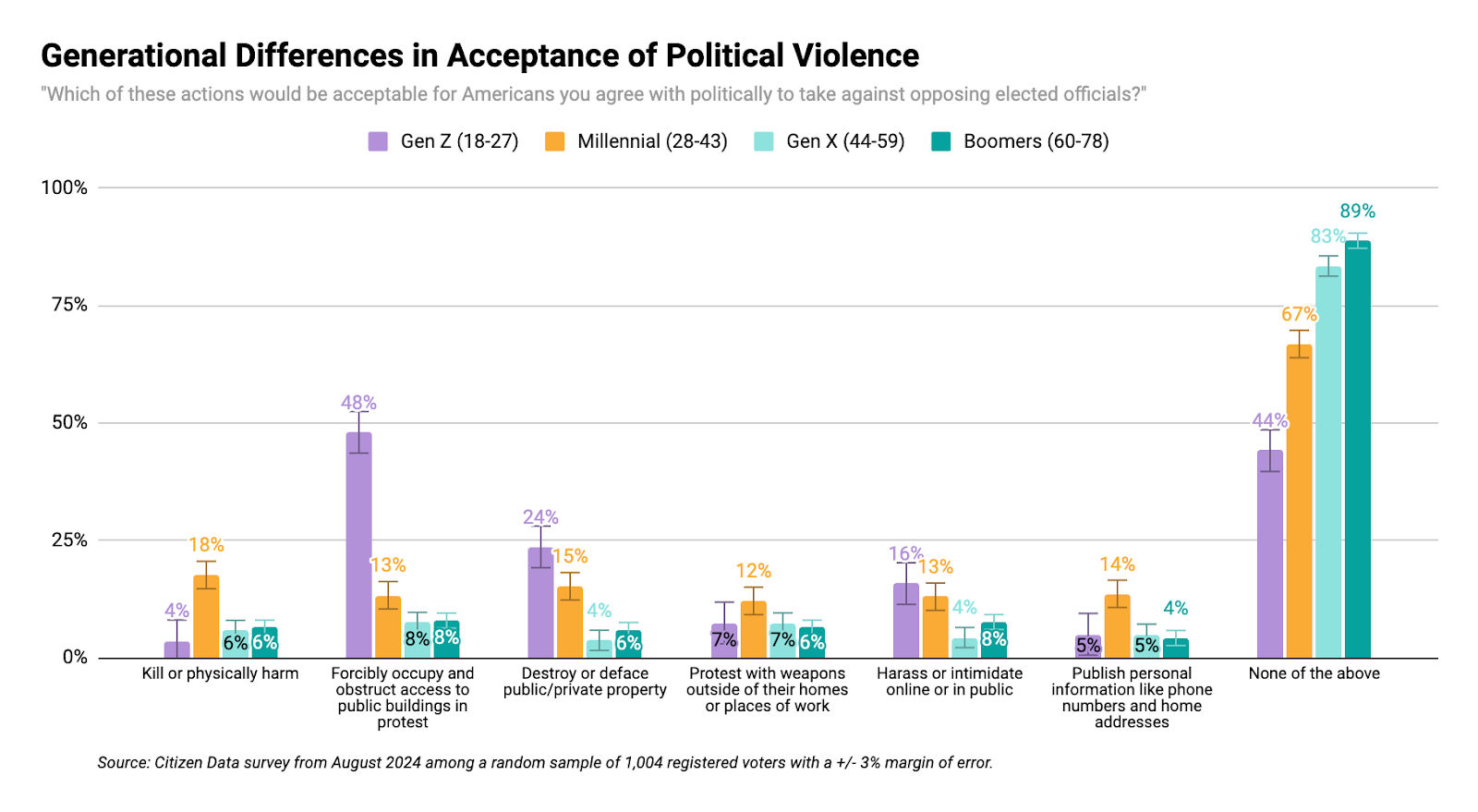How Climate Change Impacts Americans Financial Decisions August 26, 2024
Our recent survey reveals a new normal: a majority of Americans feel as though climate change directly impacts their major financial decisions

Written by: Samantha Carcache
As climate change remains a critical global issue with far-reaching implications for our planet’s future, we wanted to better understand how Americans perceive the economic consequences of climate change and how climate change influences major financial decisions across different regions of the United States. This builds on our recent collaboration with Brookings which examines levels of climate concern and climate action among Black voters as well as our research into Americans’ broader concerns about climate change.
Majority of Americans Financially Impacted by Climate Change
Our July 2024 survey found that over half of respondents (56%) reported that the consequences of climate change affect their major financial decisions, from choosing where to live to making career choices and large purchases. Only 24% indicated it has no impact.
Interestingly, when broken down by state, New Mexico and New Hampshire residents are significantly more likely to consider climate change impacts when making major life decisions, compared to upper midwest states where residents appear to not take climate into account when making major purchases. Perhaps not surprisingly, residents also report climate having an increased impact in Gulf Coast states including Florida, Louisiana, and Texas, that are often affected by extreme weather events.
As seen below, while concerns vary geographically, certain financial worries remain common nationwide, reflecting the far-reaching impact of climate change.
As climate change continues to affect weather patterns and coastal stability, we may see these regional differences become even more pronounced.
Rising Food Prices Emerge as Top Concern
A significant majority - 70% of respondents - expressed concern about potential financial impacts, ranging from increased living costs to property damage. Rising food prices emerged as the top worry, with 29% of respondents citing it as their primary climate-related financial concern, surpassing concerns like job insecurity, health-related expenses, or population movement.

The reported top 4 financial concerns reflect the immediate ways in which Americans feel climate change is affecting their daily lives and long-term financial security.
Climate Concern Levels Differ by Gender
Overall, women are slightly more concerned than men (73% vs. 67%) about the economic consequences of climate change. This aligns with other research that underscores elevated climate concern among women, and is perhaps unsurprising considering women are disproportionately impacted by the consequences of climate change compared to men.

Interestingly, women expressed more concern about food insecurity as a consequence of climate change compared to men, though further research is needed to confirm this trend.
Looking Ahead
This data offers crucial insights for policymakers, businesses, and individuals as they adjust their decision-making processes to navigate the evolving financial landscape. The intersection of climate change and personal finance will likely be a key focus in the coming years, shaping both individual decisions and broader economic policies.
Interested in exploring more about climate change perceptions? We’ll be continuing to track these key indicators to provide consistent, real-time feedback on the health of American democracy. Sign up for our latest insights here.
Methodology: The survey, conducted as part of our monthly omnibus survey, sampled N = 1,004 registered voters during July 2024. The margin of error is +/- 3.1%, and the results are weighted by Party ID, race, age, and education, ensuring a nationally representative sample.
Share this report
Looking Closer at Support for Political Violence
Given the heightened role politically-motivated violence will play in our elections this year, Citizen Data wanted to dive deeper into our tracking data on voters’ attitudes toward violence.
